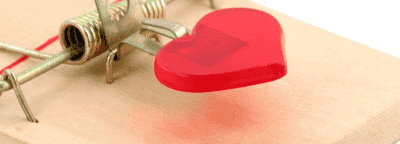
Hey there! Let’s talk about something that affects more people than you might think – the way childhood trauma shapes our adult relationships.
Whether you’re dealing with this personally or trying to understand someone who is, you’re not alone on this journey.
In fact, studies show that about 61% of adults have experienced at least one type of adverse childhood experience. Let’s explore this together and find some practical ways to build healthier relationships.
When we talk about childhood trauma, we’re not just discussing the obviously traumatic events. Sometimes, it’s the subtle things too – like emotional neglect, constant criticism, or witnessing family conflicts. Think of it like programming a computer: our early experiences create the “operating system” through which we process all future relationships.
Common forms of childhood trauma include:
- Physical, emotional, or sexual abuse
- Neglect or abandonment
- Witnessing domestic violence
- Living with family members with mental illness or addiction
- Experiencing significant loss or separation
The Dating Ripple Effect: How Trauma Shows Up in Relationships
Ever notice patterns in your dating life that just keep repeating? Maybe you’re always drawn to emotionally unavailable partners, or perhaps you run for the hills as soon as someone gets too close. These patterns aren’t random – they’re often directly linked to our childhood experiences.
Common Relationship Challenges for Trauma Survivors
Let’s break down some typical challenges you might face:
- Trust issues (the “waiting for the other shoe to drop” feeling)
- Fear of abandonment or rejection
- Difficulty setting or maintaining boundaries
- People-pleasing tendencies
- Trouble expressing needs and emotions
- Hypervigilance in relationships
The Self-Worth Connection
Here’s something crucial to understand: childhood trauma often leaves us with distorted beliefs about our self-worth. You might find yourself thinking “I’m not good enough” or “I don’t deserve love.” These thoughts aren’t facts – they’re echoes of past hurt that need healing.
Breaking the Cycle: Practical Steps for Healing
Ready for some good news? Healing is absolutely possible! Here’s your roadmap to healthier relationships:
- Seek professional support – therapy is like having a skilled navigator on your healing journey
- Practice self-compassion – treat yourself with the kindness you’d show a good friend
- Learn about attachment styles – understanding these can be incredibly enlightening
- Build a support network – surround yourself with people who get it
- Take things slow in new relationships – it’s okay to pace yourself
Communication Tips for Dating with Trauma History
When it comes to sharing your story with potential partners, timing and boundaries are key. Here’s how to navigate this:
- Share when you feel safe and ready, not because you feel obligated
- Start with small disclosures and gauge responses
- Use “I” statements to express needs and feelings
- Be clear about your boundaries and triggers
- Look for partners who respond with empathy and respect
Building Healthy Relationships: A New Chapter
Remember, having a trauma history doesn’t mean you can’t have beautiful, fulfilling relationships. In fact, many trauma survivors develop incredible emotional intelligence and depth through their healing journey. Your experiences have made you stronger, more resilient, and capable of deep connection – when you’re ready for it.
Additional Resources and Support
Ready to dive deeper into your healing journey? Here are some valuable resources:
- Books: “The Body Keeps the Score” by Bessel van der Kolk
- Apps: Calm, Headspace for mindfulness practice
- Support Groups: Adult Children of Trauma survivors networks
- Online Communities: Reddit’s r/CPTSD and r/traumabonding
- Professional Help: Psychology Today’s therapist finder
Conclusion: Your Journey to Healing
Healing from childhood trauma while navigating the dating world isn’t easy, but you don’t have to do it alone. Remember, your past experiences may be part of your story, but they don’t have to determine your future. With understanding, support, and the right tools, you can build the healthy, loving relationships you deserve.
“`







